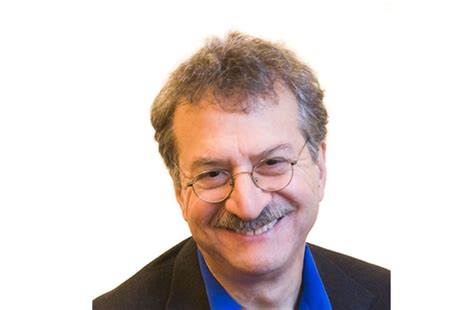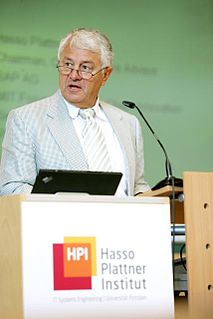A Quote by Kevin Kelly
A brain is a society of very small, simple modules that cannot be said to be thinking, that are not smart in themselves. But when you have a network of them together, out of that arises a kind of smartness.
Related Quotes
Wherever the Net arises, there arises also a rebel to resist human control...A network nurtures small failures in order that large failures don't happen as often. It is...fertile ground for learning, adaptation, and evolution...The only organization capable of unprejudiced growth, or unguided learning, is a network. All other topologies limit what can happen.
The most powerful military in the world cannot invade, kill or capture a network or destroy every loose weapon on the planet. The best response to this network of terror is to build a network of our own -- a network of like-minded countries and organizations that pools resources, information, ideas, and power. Taking on the radical fundamentalists alone isn't necessary, it isn't smart, and it won't succeed.
Spaces of liberation are, in a certain way, some kind of social spaces where people can not only get together and think about something else, but also act together. If you are thinking about an elemental solidarity, you are thinking about people acting together and taking decisions together, and thereby beginning to think about what sort of society they want to create. So, there is a need for liberated spaces; that is really difficult.
All of those on the left, as I am, have always vastly preferred the democratic society over the hierarchical society and still do, but the democratic culture doesn't exist without highly informed citizens capable of thinking well, and if you have schools in which 40 percent of the people coming out of them cannot make change for a dollar, you don't have a democracy. You have a sibling society.
Dr. Leonard Shlain, chairman of laparoscopic surgery at California Pacific Medical Center, said they took some four and five year-olds and gave them video games and asked them to figure out how to play them without instructions. Then they watched their brain activity with real-time monitors. At first, when they were figuring out the games, he said, the whole brain lit up. But by the time they knew how to play the games, the brain went dark, except for one little point.
My greatest influences are actually probably a set of different teachers. And these teachers, most prominently at my high school, but also a few others, helped kind of instill in me, thinking thoughts about how life is meaningful in terms of how we all kind of live in a network of people and how you interact with those people is part of what makes life essentially meaningful and then kind of concepts to think about, how do you add value to other people's lives? How do they add value to yours? And how do you kind of form a community together in the network?
The playfulness that I talk about comes very slowly. You cannot just jump out of your seriousness which you have accumulated for lives. Now it has a force of its own. It is not a simple matter to relax; it is one of the most complex phenomena possible, because all that we are taught is tension, anxiety, anguish. Seriousness is the very core the society is built around. Playfulness is for small children, not for grown-up people. And I am teaching you to be children again, to be playful again. It is a quantum leap, a jump...but it takes time to understand.



































